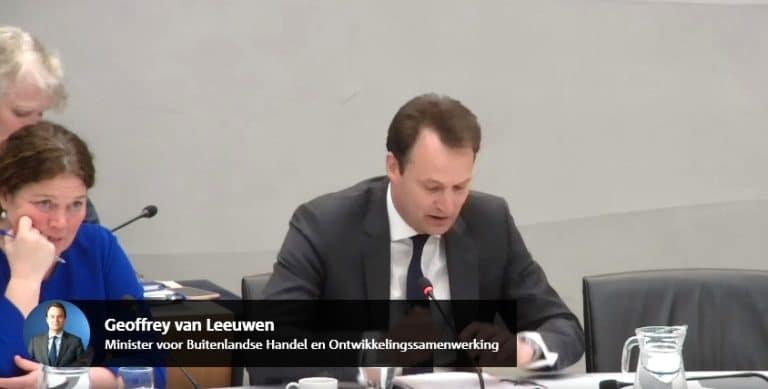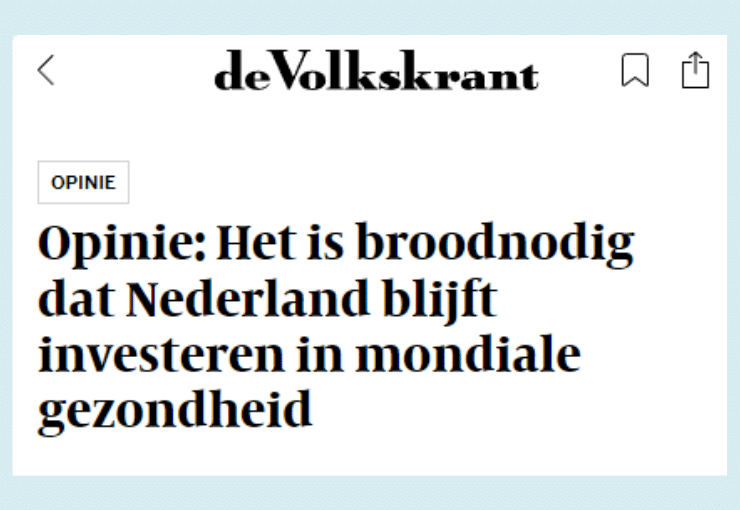Jorge Vega Cardenas & Corinne Hinlopen
Mobility is an opportunity for health workers who do not find a job in their home country. But their emigration has potentially devastating consequences for countries where the health system is already weak. We call upon WHO and its Member States to pay attention to this pitfall.
For every health worker who emigrates to Europe or North America, there is someone left without medical attention in Africa. Every two minutes a woman – most often from a low-income country – dies in pregnancy or childbirth due to the lack of health workers and facilities. When health workers emigrate, these countries lose already scarce resources. Let’s take for example the case of the 600 South African health workers who have been licensed to practice in Canada since 1993. This represents a loss to South Africa public training costs exceeding $70 million. In contrast, Canada saves some $300 million to $500 million in foregone Canadian training costs.
WHO Code
To address the above problem, the World Health Organization’s (WHO) Global Code of Practice on the International Recruitment of Health Personnel was adopted during the 63rd World Health Assembly in 2010. Some relevant points from this code are that countries agreed to create a sustainable health workforce, share information, and facilitate skills to the benefit of both source and destination countries.
WHO Member States are encouraged to submit national reports every three years on the actions they have taken to implement the Code. An Independent Stakeholders Reporting instrument was made available by WHO to facilitate stakeholders reporting. The current 3rd round of reporting is an excellent opportunity for civil society organizations to hold their governments accountable and to encourage their governments to submit their national reports.
Not enough GPs
The Netherlands’ government will also submit their national report through the Ministry of Health. This report comes at a crucial moment as the Netherlands is momentarily facing a growing and increasingly worrisome shortage of health workers. Drenthe, the country’s least populated province, has seen a decrease in the concentration of clinical pediatric care from three locations to just one location, due to a lack of pediatricians. Zeeland, a tranquil and beautiful seaside province, will soon not have enough GPs to cover the ever-growing health needs of elderly people in that area. Recruiting agencies have rung the alarm bell because the demand for nurses in home care and care for the elderly now exceeds the supply by a factor four to five.
At this point, the Dutch government is not planning to recruit health workers from abroad, mainly because of the language barrier. However, our labour market has a very strong pull effect on those who are committed to learn the Dutch language and dare to venture abroad. The Dutch government has clearly not invested sufficiently in their domestic health workforce, in spite of a number of vision documents, strategies and action plans. It was too little, too late. This not only jeopardizes the right to health of the Dutch population but also increases the possibility of recruitment abroad, with the risk of undermining health systems elsewhere in the world.
Collaboration
At Wemos, we are committed to making the voices of the most vulnerable heard. This is our message to WHO and the Member States, now that they are in the 3rd round of reporting on the Code. We will submit an Independent Stakeholders Report on the Dutch situation to WHO, and are encouraging civil society organizations in Europe and Eastern Africa with whom we collaborate in the newly founded Health Workers for All Coalition, to do the same. We definitely look forward to the results of the 3rd reporting round, due before the World Health Assembly in May 2019.
The Health Workers for All Coalition, coordinated by Wemos, is a civil society network that advocates access for everyone, everywhere to skilled, motivated and supported health workers within a robust health system.
Read more about our programme on Health worker mobility




